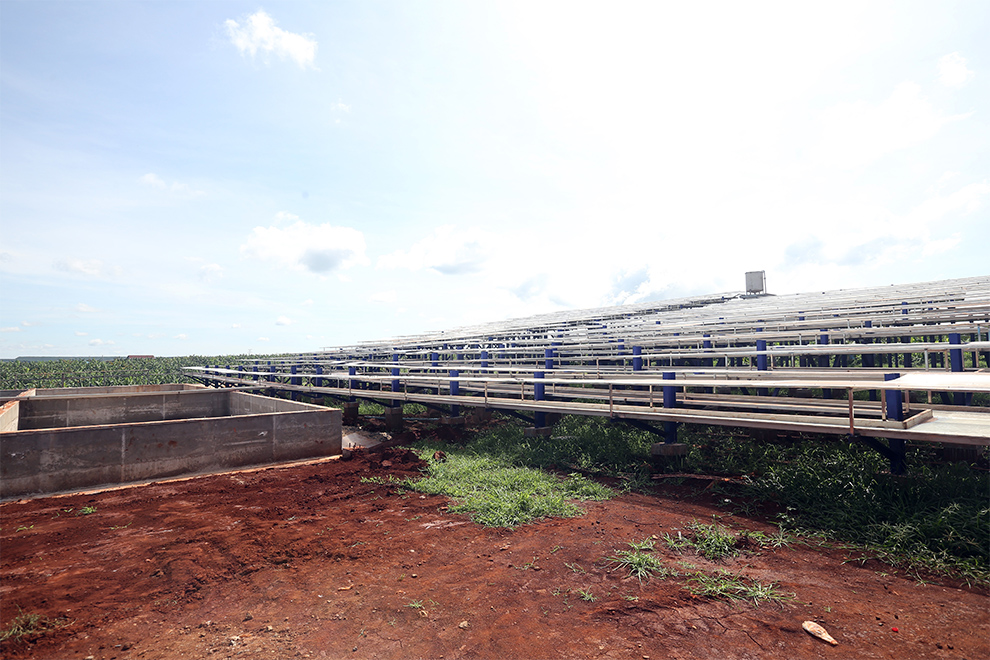
A worker inspects the process of turning raw rubber into latex. Hong Raksmey
In a bold step toward self-sufficient supply chains, a Boeung Ket rubber plantation – in Stung Trang district of Kampong Cham province – has announced plans to expand its operations by producing latex gloves for export.
The move is part of the company’s broader initiative to process rubber locally, keeping more profits within the country and reducing reliance on foreign producers.
Heng Long, president of the company, explained to local media that the company has already ramped up its production of latex rubber. They currently produce about 300 tonnes per day, with the target of reaching 600 tonnes daily in the near future.
“In half a year or a year, we will produce gloves in our own country. We don’t want foreign companies to profit too much from us,” said Long.
This shift marks a turning point for Cambodia’s rubber industry, as the country moves toward becoming a key player in the global latex gloves market.
The company’s ambitious expansion is also expected to create hundreds of new jobs for local workers, many of whom are returning from Thailand in search of employment opportunities closer to home.

Liquid rubber flows from tanks to the factory. Hong Raksmey
District governor Ban Sreng expressed his support for the initiative, noting that the Cambodian government has been actively encouraging migrant workers to return.
“Stung Trang district has about 7,000 migrant workers, and we expect Heng Long’s company to be able to absorb a large number of them,” Sreng said.
“Apart from this company, other private sectors also need workers,” he added.
The Boeung Ket expansion will require an additional 1,300 employees, according to Long.
The company currently employs around 6,000 workers across its various operations, which include rubber plantations, fertiliser factories, banana plantations and even paper production.
Workers earn between $13 and $15 per day, with higher pay rates for skilled workers, as well as food and accommodation. The company plans to shift to salaried positions in the future, offering more stable employment.
In addition to rubber, the company is involved in the cultivation and export of various agricultural products such as bananas, durian, Pailin longan, grapefruit and jackfruit.

The interior of the large rubber factory, at Beoung Ket in Kampong Cham province. Hong Raksmey
The company has invested heavily in modern infrastructure, including irrigation systems, harvesting technology and packaging facilities, ensuring that it meets international standards for export.
Its rubber products are already making their way to key markets such as China and Vietnam.
Kampong Cham province, where the company is based, is home to over 265,000 hectares of agricultural land, with 66 per cent of the population working in agriculture.
With its investments in both rubber and other crops, the company is poised to play a major role in the region’s economic development.
The announcement has generated optimism among local workers and government officials alike, as it promises not only to strengthen Cambodia's agricultural sector but also to boost employment and self-sufficiency in the rubber and manufacturing industries.

The flow of rubber is inspected carefully at each step of the process. Hong Raksmey











